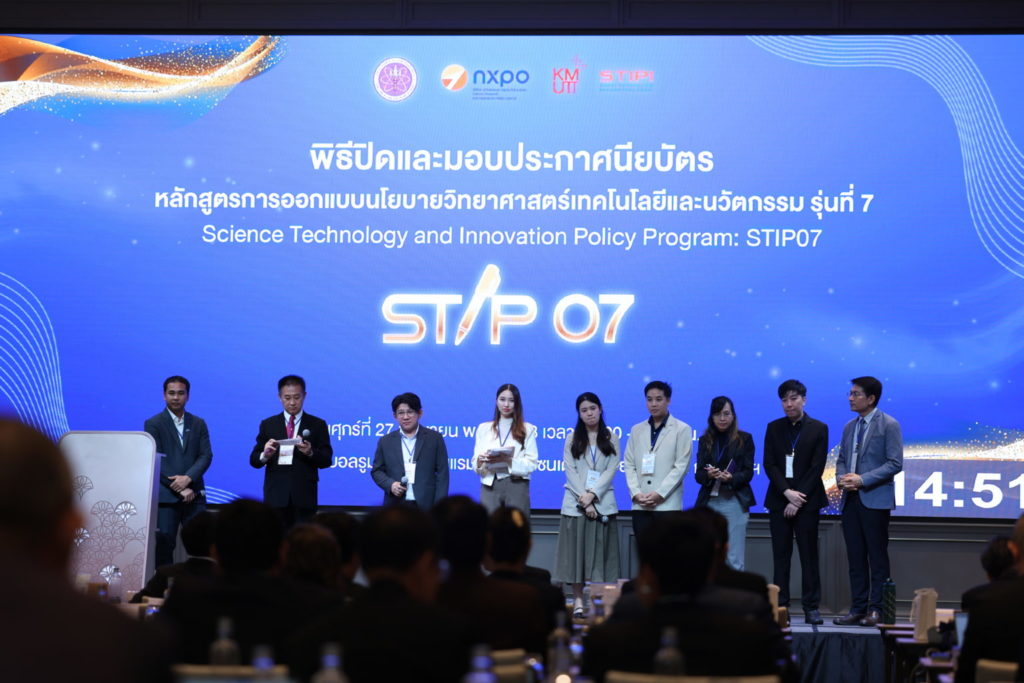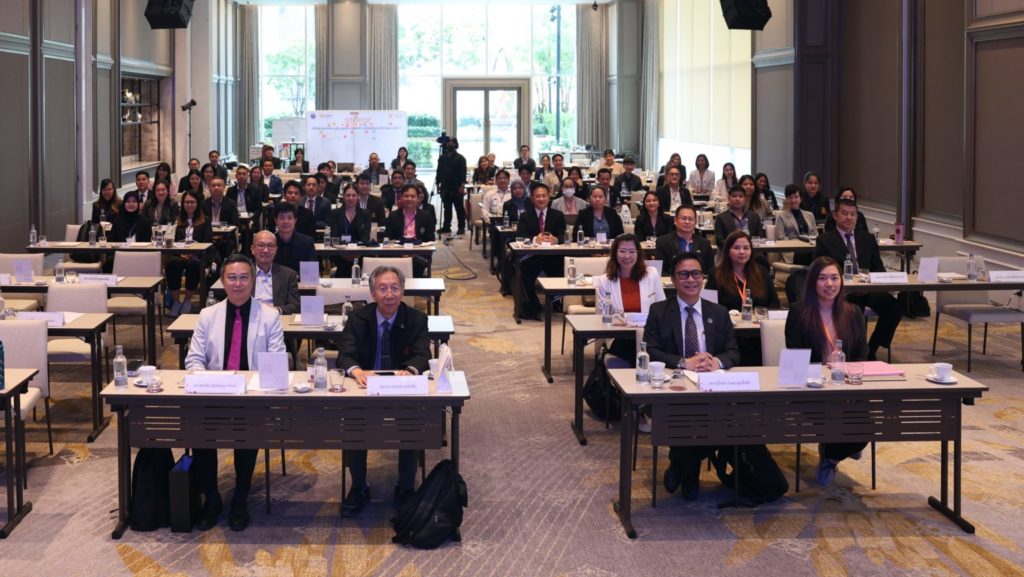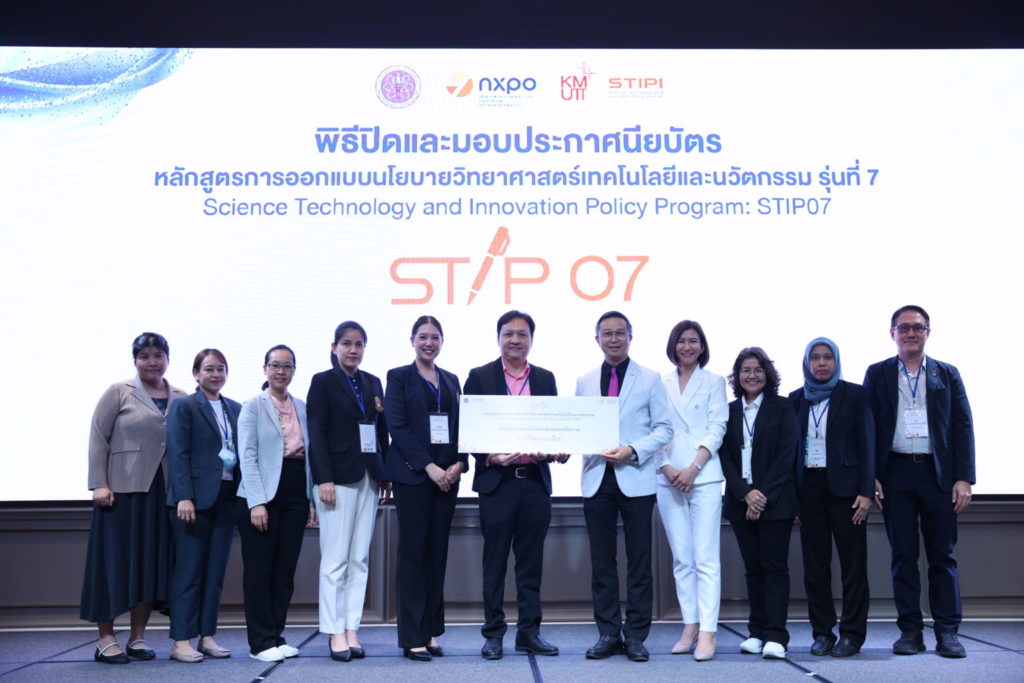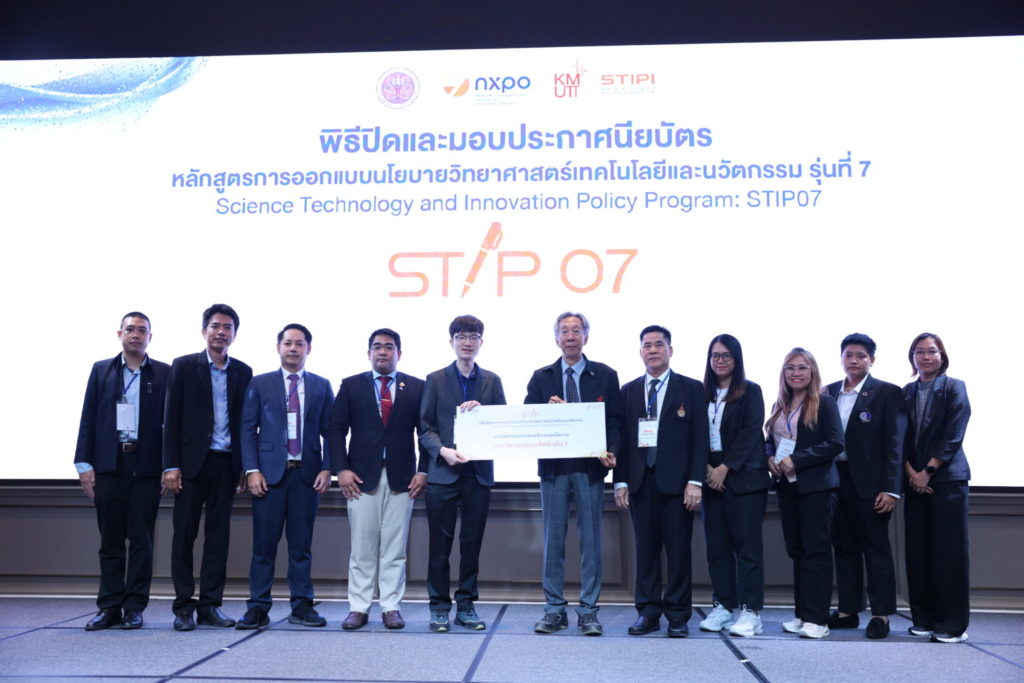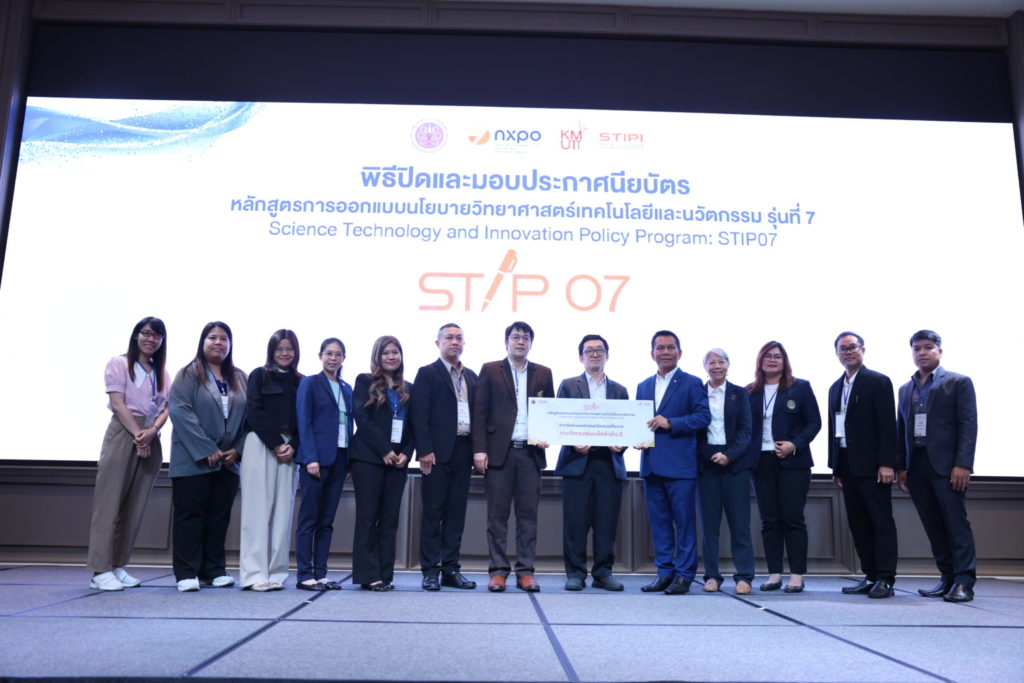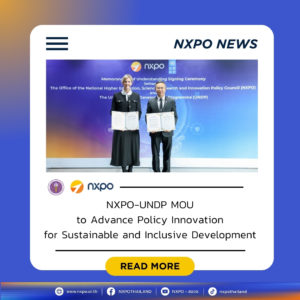On 27 June 2025, NXPO, in collaboration with the Science, Technology, and Innovation Policy Institute (STIPI) of King Mongkut’s University of Technology Thonburi (KMUTT), organized the closing ceremony and certificate presentation for the 7th Cohort of the Science, Technology, and Innovation Policy Design Program (STIP07) at Grande Centre Point Lumphini, Bangkok. The event was presided over by Dr. Surachai Sathitkunarat, President of NXPO, and Assoc. Prof. Dr. Suvit Saetia, President of KMUTT.

In his remarks, Dr. Surachai noted that beyond delivering knowledge and a platform for exchanging policy design experiences, the STIP program serves to bring together individuals working in public policy with a shared ambition of driving meaningful, actionable change. This year’s program notably improved in three key areas: 1) Policy proposals were clearer, more actionable, better positioned for real policy adoption, 2) Participants were introduced to new tools, such as cost analysis methodologies in policy-making, and 3) The program expanded engagement with advisors, coaches, and experts from various fields, providing valuable guidance and feedback to enrich each team’s policy development process.
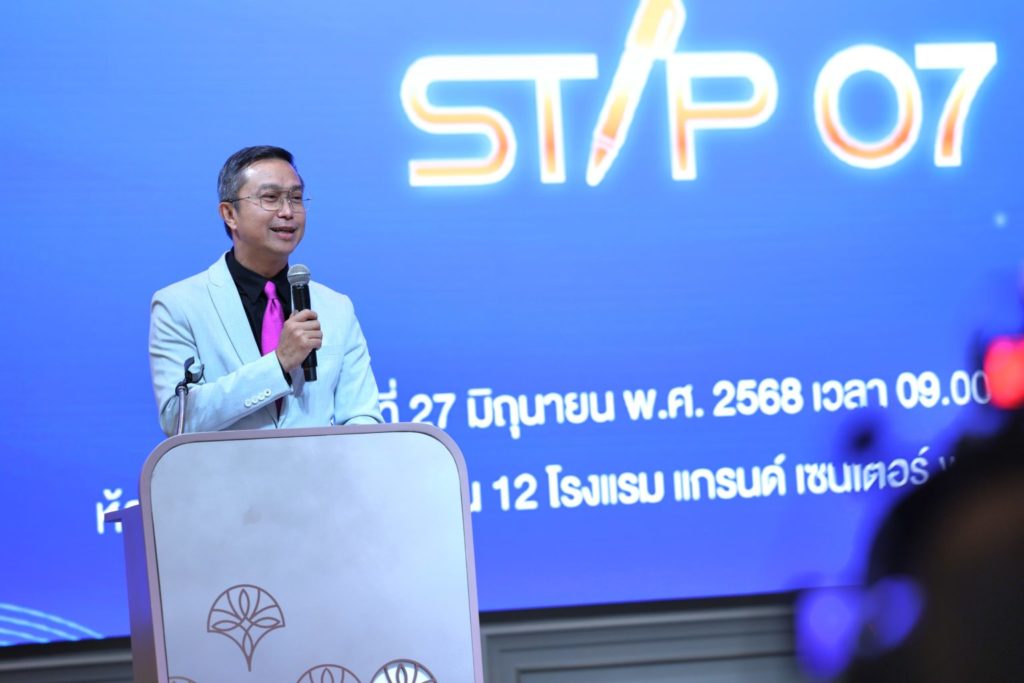
Assoc. Prof. Dr. Suvit Saetia added that STIP was established to strengthen the capacity of policymakers and executives, equipping them to design responsive, adaptive policies in a rapidly evolving science, technology, and innovation landscape. The program places equal emphasis on theoretical understanding, hands-on practice, and the cultivation of a dynamic policy network, facilitating exchanges across government, private sector, and civil society.
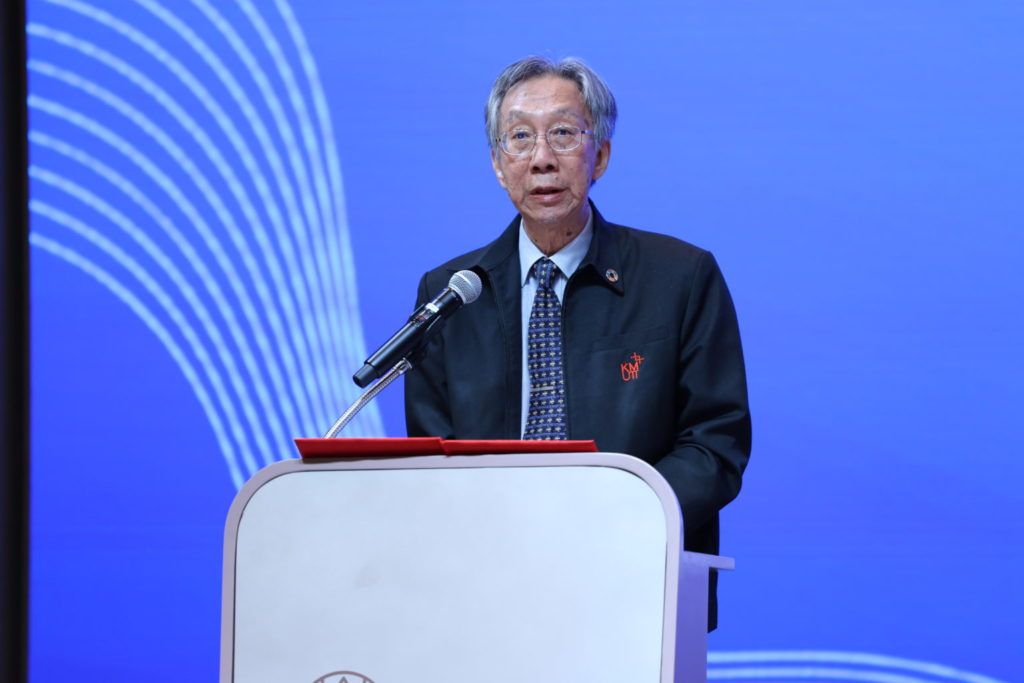
He commended the participants for their dedication and collaborative spirit, noting that the proposed policies reflected their creativity, competence, and genuine concern for societal well-being. He expressed hope that the knowledge and experience gained would be carried forward and translated into impactful policies for the benefit of their organizations, communities, and the country.
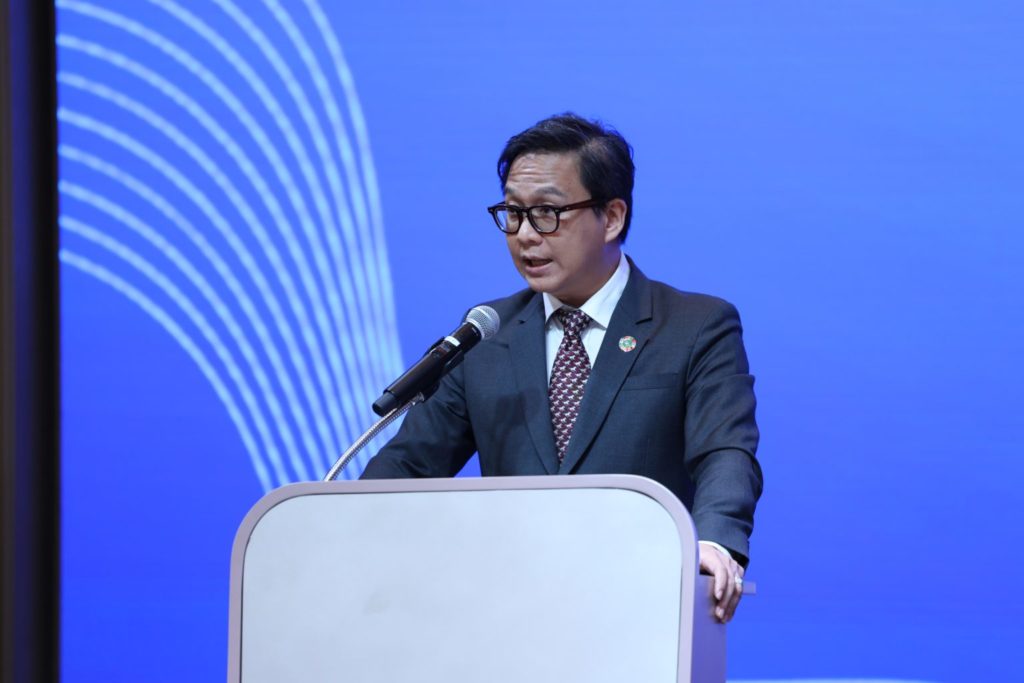
Dr. Bank Ngamarunchot, Director of STIPI, shared that to date, the program has graduated over 350 participants from 46 organizations. The 7th cohort saw 58 graduates from 35 organizations, encompassing agencies under the Ministry of Higher Education, Science, Research, and Innovation (MHESI) as well as other sectors — contributing to a growing national network of policy practitioners committed to advancing the country’s development. The STIP curriculum is designed to cultivate three core attributes in participants, known as STIPERs: 1) Passion and vision to drive positive national change, 2) Policy tools and capabilities necessary for implementing that change, and 3) A supportive community of like-minded peers working toward shared national goals. The three-month program comprises four modules: 1) Exploring national challenges and opportunities, 2) Learning policy analysis and design tools, 3) Applying those tools through group projects, and 4) Building the STIPER network through inter-cohort exchanges and collaborative activities.
“Our work with the STIPER community does not end after these three months. We will continue working together to realize our visions for Thailand’s development. The policy tools acquired here will be applied in practice, and our network will remain active and connected. STIP is not just a training program — it’s a platform for building alliances to shape the country’s future,” Dr. Bank concluded.
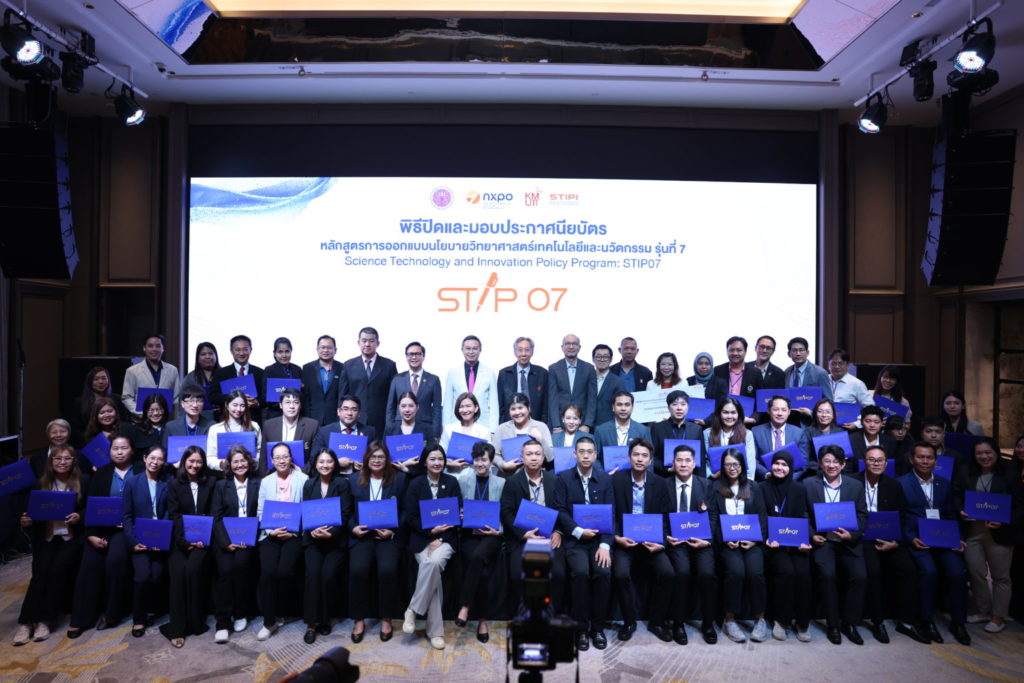
The event also featured presentations of five group policy proposals:
- Group 1: “Senior Smart Local” — A policy to strengthen the capacity of senior citizens in local communities to transition from agriculture to the service sector. Outstanding Award)
- Group 2: A policy to promote dementia prevention through appropriate tools and technologies. (Merit Award)
- Group 3: A proposal to improved Bangkok’s disaster prevention and mitigation plan using database systems and digital technology, upgrading the Traffy Fondue platform to Traffy Fondue Care Plus+. (Excellent Award)
- Group 4: A policy proposal for urban food waste management in Bangkok.
- Group 5: “The Road to Success for Street Food” — A district-based creative development initiative centered around the Talad Phlu area

